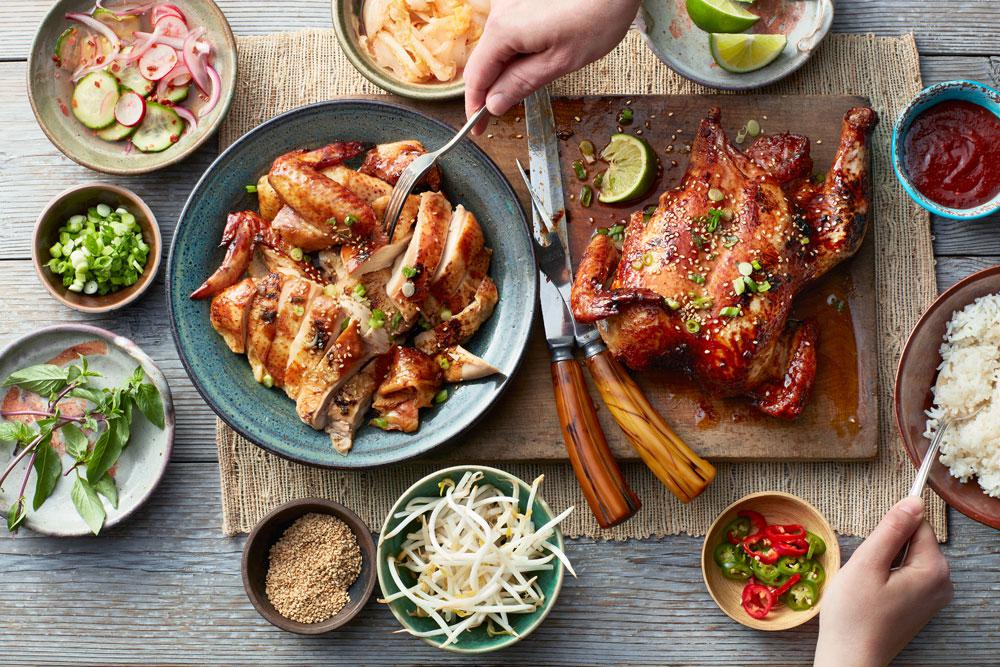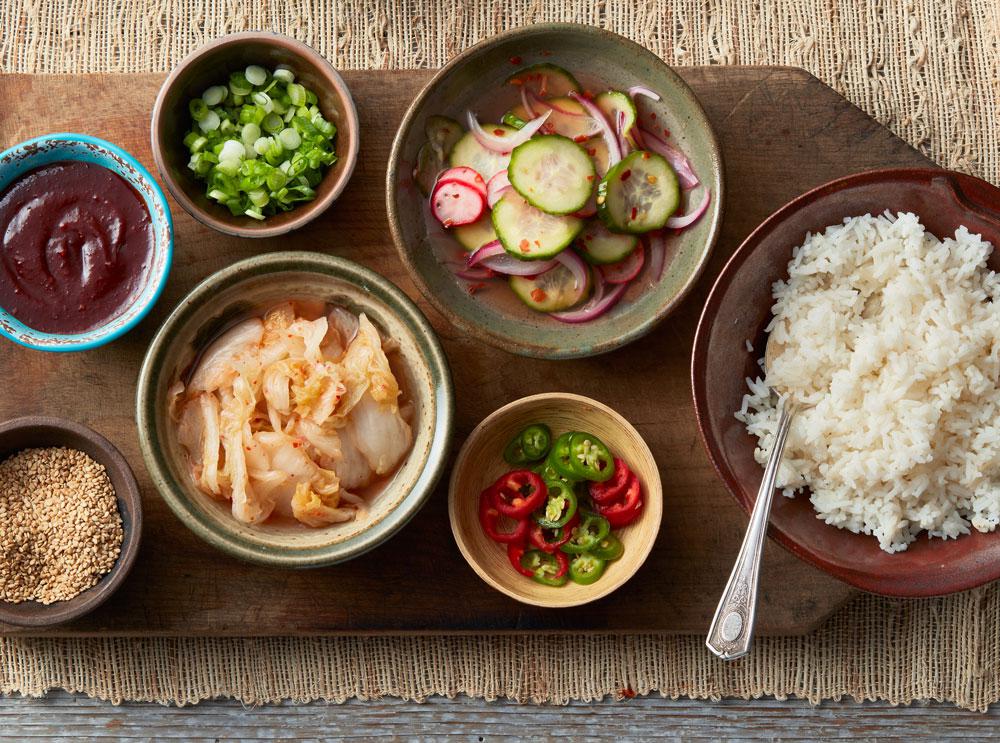Foods meant for feasting.
Korean cooking sets a high standard for turning daily meals into special occasions, and it’s the flavor as much as the ingredients that bring people together in such celebratory ways. If there’s a secret to the drawing power of Korean cuisine, it’s an open secret. Simply stated, umami is a constant. A wide range of traditional ingredients such as soy sauce and dried anchovies establish this important fifth taste along with fermented foods such as kimchi. And that’s just the starting point. There are all kinds of flavors to discover.
Bap and banchan set the stage.
In the Korean language, cooked rice is called bap. It’s served individually to each person at the table unless the main course is a noodle dish or porridge. Side dishes are called banchan, and there are an endless variety. One reason is the country’s long culinary history, and another is geography. Mountainous areas, for instance, developed different favorites than coastal regions.
Key ingredients of Korean cooking include many of the ones you see here. Sesame seeds, both white and black, are commonly used and toasted until fragrant. Napa cabbage is prevalent in kimchi, stews and as wraps. Green onions are prized for their fresh flavor and color. And pickled carrots or green chiles add zip to deeply flavored barbeque menus along with salads made of crisp cucumbers and sea vegetables. Gochujang, though, is what’s really hot.

Savory, sweet, spicy. Gochujang has it all.
In recent years, hot sauces of several kinds have surged in popularity. Some compete on heat. Others feature vinegar for a tangy profile. But one is truly complex, and that’s gochujang, a staple in Korean cooking for centuries if not millennia. Traditional ingredients call for rice, red pepper powder, soybeans and salt. It’s fermented for months (or even years), and the result is a paste rich in umami that’s perfect for deepening flavors and bringing out the best of different ingredients. Once you try gochujang, you’ll find other non-traditional uses too. Try it first with our recipe for Korean Barbequed Chicken.

Simple marinade, outstanding results.
Sweet, savory marinades are a big reason why Korean grilled meats and poultry are world-renowned. Just a handful of ingredients come together to make a kalbi style marinade in Korean Barbequed Chicken. Kalbi is a Korean dish that usually features beef short ribs, but the marinade and sauce are perfect with grilled, butterflied chicken. By removing the backbone of the chicken and pressing it flat, you’re exposing more surface area to the marinade and preparing the chicken for faster, even grilling. You can use the same marinade in Korean Marinated Chicken Wings.
Get to know Korean cooking. Its distinctive flavors and near universal appeal will bring together your family and friends for home-cooked meals everyone can share and enjoy.

